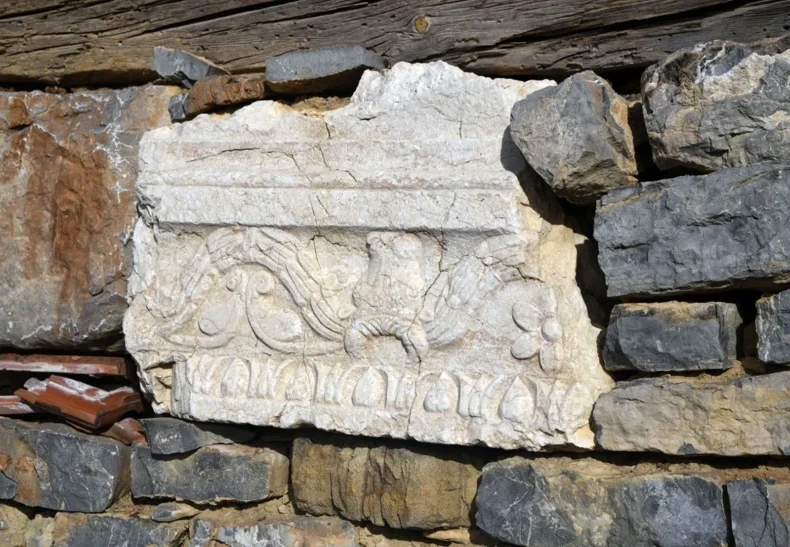
Villagers Used Stones from a Zeus Temple to Build Their Homes
In northern Anatolia, the remains of an ancient Roman sanctuary have resurfaced in a way few would expect. In the Daday district of Kastamonu, villagers once took stones from a temple dedicated to Zeus and reused them in the construction of their homes, embedding fragments of a sacred monument into everyday domestic architecture. The site

A 2,600-Year-Old Persian-Era Tandoor Discovered at Oluz Höyük by Turkish Archaeologists
Buried just beneath the floor of an ancient domestic space at Oluz Höyük in northern Türkiye, a clay-built oven has resurfaced with a familiar shape. Despite being 2,600 years old, the structure looks strikingly similar to the tandoors still used in Anatolian kitchens today—an architectural continuity that spans millennia. The discovery was made during the
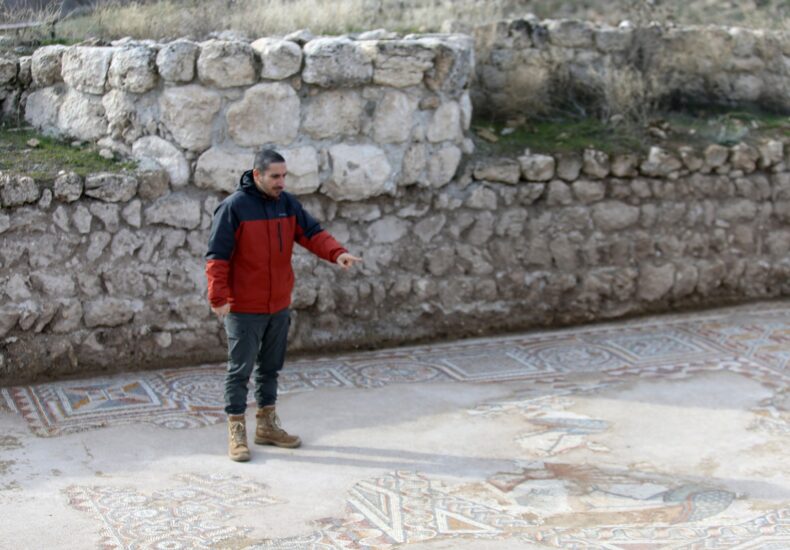
Late Roman Palace Hall with Rare Mosaics Discovered at Hadrianopolis in Northern Anatolia
The moment archaeologists lifted the soil, the floor answered first—a near-intact mosaic field, still crisp enough to read like a visual statement of power. At Hadrianopolis, the ancient city in Karabük’s Eskipazar district in northern Anatolia, excavators have uncovered a mosaic-paved reception hall interpreted as part of a palace-like complex. The Find: A Formal Reception

A Smiling Medusa Discovered in the Ancient City of Amastris on Türkiye’s Black Sea Coast
Archaeologists working in Amasra have uncovered a highly unusual depiction of one of antiquity’s most iconic mythological figures. A Medusa carved not with a terrifying expression, but with a gentle, almost smiling face has been found among the ceiling coffers of a monumental Roman stoa. The discovery offers a new perspective on the artistic choices
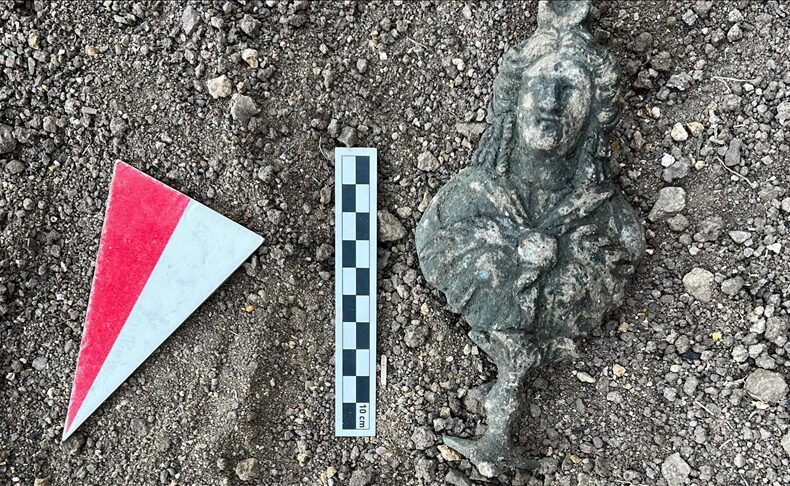
Bronze Bust of Egyptian Goddess Isis Discovered at Satala, a Roman Military Fortress in Northern Türkiye
A 20-centimeter bronze bust of Isis found in the Roman city of Satala reveals the presence of Egyptian religious traditions among legionaries stationed in the Anatolian highlands. Archaeologists working at Satala, a major Roman military center in Kelkit, Gümüşhane Province, have unearthed a finely crafted bronze bust of the Egyptian goddess Isis. The rare discovery
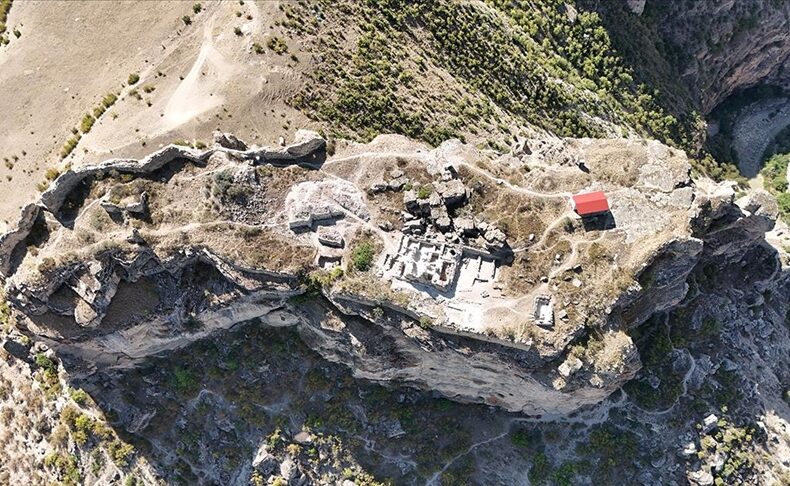
Archaeologists Identify the Burial Chamber of Georgian King Ashot the Great at Gevhernik Castle
Archaeologists working at Gevhernik Castle in Ardanuç, northeastern Türkiye, have identified a vaulted burial chamber beneath the apse of the Church of Saints Peter and Paul, believed to be the long-lost tomb of Georgian King Ashot I (Ashot the Great, Kuropalates) — a pivotal ruler in the formation of medieval Georgia.The discovery provides the first

Lost Temple Unearthed in Amasya: Built from Volcanic Rock, Absent from Ancient Records
Archaeologists in Türkiye have uncovered a mysterious 2,600-year-old temple at Oluz Höyük in Amasya—one that is absent even from the writings of ancient historians such as Herodotus and Strabo. The discovery sheds new light on Central Anatolia’s religious landscape during the Iron Age. Excavations, led for 19 years by Prof. Dr. Şevket Dönmez of Istanbul
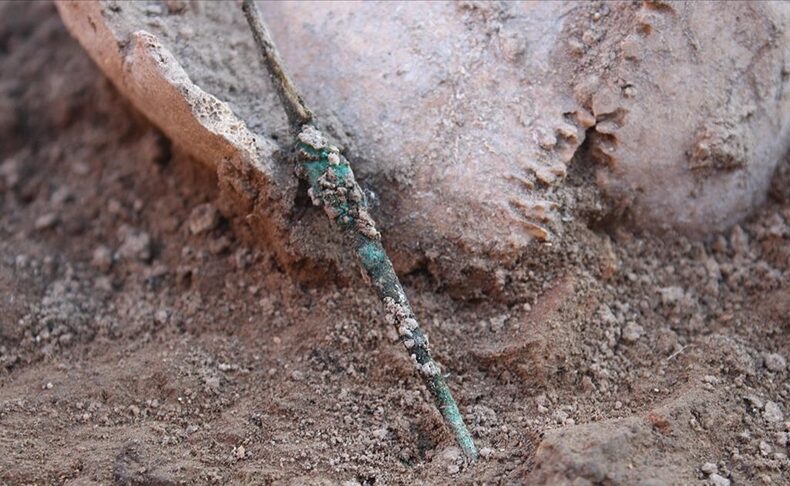
Gifted Burials Unearthed at İkiztepe Mound: An Avenger and a 6-Year-Old Child
Two remarkable “gifted burials” have been uncovered during this year’s excavations at the İkiztepe Mound in Bafra, Samsun. The discoveries shed new light on the burial traditions and social structures of Early Bronze Age communities in northern Anatolia. An Avenger Buried with Harpoons and a Child with Bracelets According to excavation director Assoc. Prof. Aslıhan

4,500-Year-Old Mussel Shells Unearthed at İkiztepe: Clues to Bronze Age Cuisine and Trade in the Black Sea Region
Archaeological excavations at the İkiztepe Mound in Türkiye’s Samsun province, ongoing for over half a century, have uncovered Mediterranean mussel shells dating back to the 4th millennium BC. The discovery sheds light on ancient trade routes and Bronze Age dietary habits in northern Anatolia. A Half-Century of Excavations Revealing a Lost Settlement Situated in the

Traces of the Kaška People Unearthed at Oymaağaç Höyük: New Clues to the Hittite Sacred City of Nerik
In the Vezirköprü district of Samsun, northern Türkiye, Oymaağaç Höyük—identified over two decades of excavations as the Hittite sacred city of Nerik—has revealed new traces of the elusive Kaška people, one of Anatolia’s lesser-known indigenous groups. Recent finds, including architecture and pottery from the Middle Bronze Age and Iron Age, are offering unprecedented insights into
